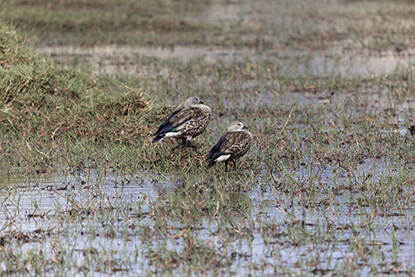Ethiopia drafts the country’s first Wetlands Directory
On the 10th of October 2019 Ethiopia launched its’ first ‘Wetlands Directory’, a collaborative effort between the Ethiopian Wildlife and Natural History Society (EWNHS) and Wetlands International.
The 566 page document was prepared by the aforementioned parties and university professors, supported by the International Climate Initiative (IKI) and the German Ministry for Environment, Natural Conservation Building and Nuclear Safety.
Whilst Ethiopia has vast areas of wetlands, they have come under pressure from unsustainable land use, deforestation, overgrazing and over-exploitation - the results of agricultural and urban developments. Wetlands International - an NGO with over 20 offices worldwide including its head office in Ede, the Netherlands – seeks to protect such wetlands, hoping to maintain the wetlands’ biodiversity and water provision capacity in the face of climate change.
With its’ highlands and particular climate, Ethiopia is unique in the Horn of Africa in terms of its’ relatively stable and plentiful water-supply. The directory is the first of its kind, providing a comprehensive overview of the Ethiopian wetland-ecosystem in addition to an analysis of wetland degradation and description of possible remedies. Addis Ababa University’s professors Dr. Abebe Getahun PhD (Aquatic Biology), Dr. Brook Lemma PhD (Freshwater Ecology and Wetlands Management) and Dr. Seyoum Mengistou PhD (Aquatic Ecology) were significant contributors to the directory, outlining a national guideline for the restoration of designated areas.
The next step is government/federal legislation and the implementation thereof, a step that Ethiopia’s Forest, Environment and Climate Change Commission (FECCC) is preparing in the form of a proclamation. In a country heavily dependent on agriculture and a region predicted to face worsening water shortages, these recent developments are necessary step in the right direction. Effective and sustainable management of water resources is of the utmost importance for the country’s people and future.
Source & more information:
- https://www.wetlands.org/
- https://www.thereporterethiopia.com/article/ethiopia-gets-first-wetlands-directory
